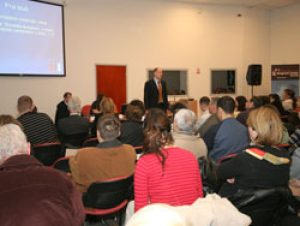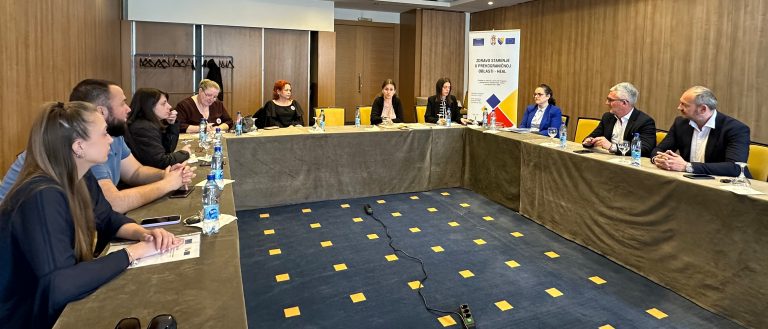Cross-border cooperation, a step toward the EU

The Office for European Affairs of the Executive Council of Vojvodina has presented the potentials that local self-governments may use today at the Fair of Investments INVESTEXPO. Igor Bajić, Advisor for EU Integration of the Office for European Affairs, pointed out that the activities of the Office are aimed at our country’s accession to the European Union in the shortest possible time and based on the principle of “three pillars – first, promotion of European ideas, second, activities related to the use of the EU IPA and development funds, and third, regional cooperation with regions, cities and municipalities of the member states of the European Union”.
According to Bajić, the “third pillar”, i.e. regional cooperation is very important because it enables direct contact with the EU institutions and with its structural and cohesion funds. Bearing in mind that our neighbouring countries are all either member states of the EU or candidate countries, cross-border cooperation is very important. All those who will be engaged in CBC projects will have an “open door” and invaluable experience which will be a comparative advantage once we become a candidate country, and later a member state of the European Union. All those who manage to receive EU funding will have to take care that the funds are spent properly, i.e. that they get a pass mark, so that they could submit new project applications. In the case of Serbia, the advantage of cross-border cooperation is that our neighbouring countries have similar problems to us, which is mirrored in high unemployment, outdated technologies, inefficient business and ecology. The benefits of cross-border cooperation are above all economic development and support to business development, introduction of modern technologies, equipment and IT in business and development of regional products. Such cooperation can yield positive results in environmental protection and pollution reduction, lead to solving the problem of city and regional dump sites, establishing ‘people-to-people’ relations, defining legal remedies for discriminated groups, improving multiethnic relations and protecting cultural heritage. In addition, the small absorption capacities of state administration and local self-government institutions, lack of quality projects, public non-information on the EU funds and how they function present obstacles to greater participation in cross-border cooperation.





